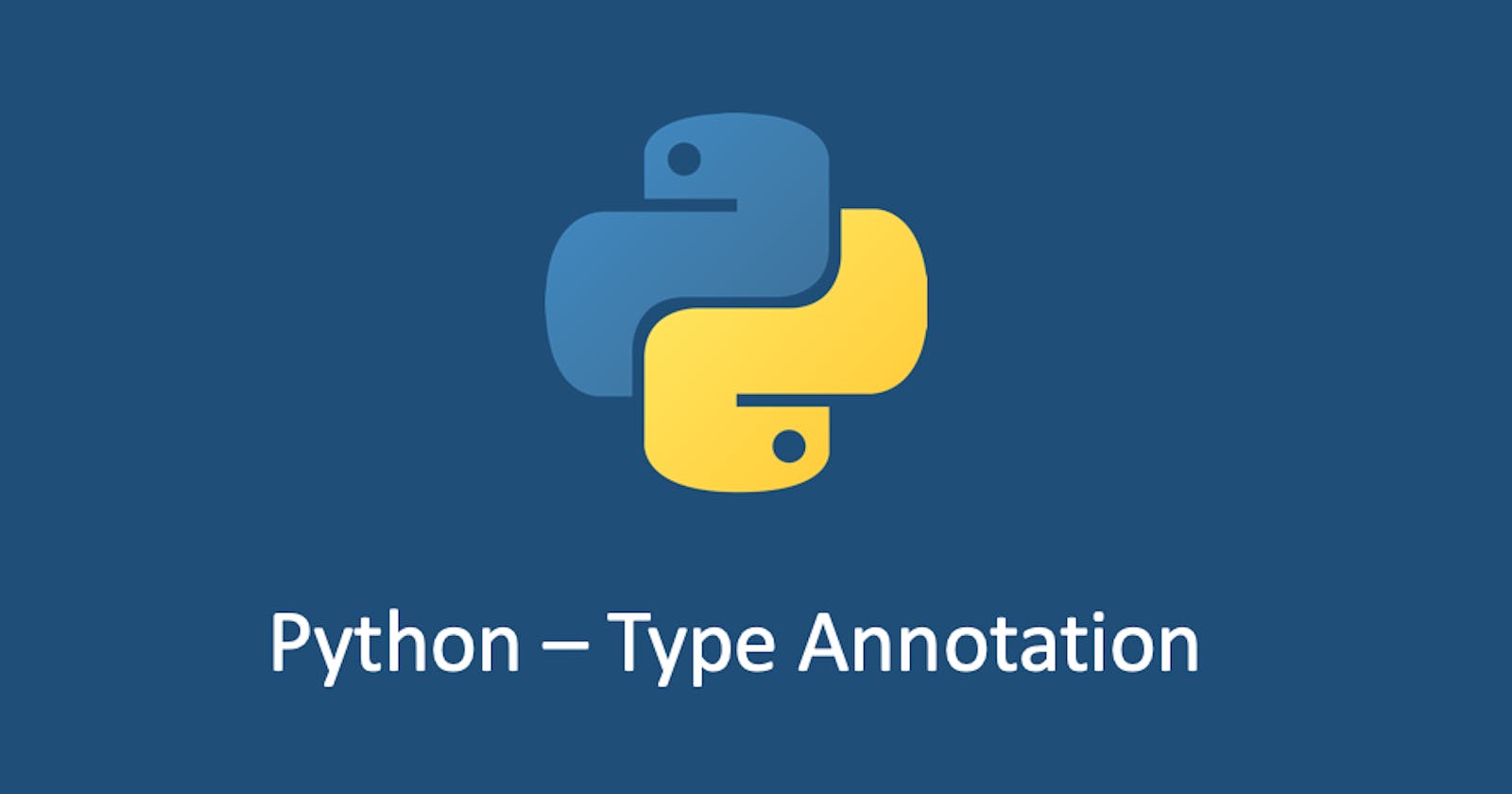Boost Your Python Programming Skills with Type Annotations: The Beginners Guide
In the world of Python programming, there's a powerful tool that can significantly improve code quality and readability—Type Annotation. While Python's dynamic typing offers flexibility, it can sometimes lead to unexpected issues. Type annotation, introduced in Python 3.5 and above, allows you to specify variable types within your code. This article, tailored to beginners in Python, explores the concept of type annotation, Its Importance and its practical applications. This Article also touches on the use of a static code analysis tool to catch type mismatches in Python. Let's delve into this essential aspect of Python programming to enhance your understanding and coding proficiency.
In Python, Type Annotation is a feature that allows you to specify the data type of variables, function parameters, and return values within your code. It provides hints to both developers and tools (like linters and type checkers) about the expected types of values used in your program. Type annotations are not enforced at runtime, meaning that Python will not raise errors based on the annotations themselves. However, they serve as a form of documentation and can be leveraged by third-party tools to analyze and check your code for potential type-related issues.
Importance of Type Annotation
When you add types to your variables, Python does not change the functionality of your Python code, it only suggests to Python the variable's data type. The use of Type Annotations has several benefits. The following are the importance of Type annotation and why it is great to use it as a programmer:
Type Annotations make your code more readable and self-explanatory.
Type Annotations increase the readability and clarity of your code.
Type Annotations Allow static code analysers to catch Type errors
Type Annotations reduce the need for extensive comments
Python is a Dynamically Typed Language
"""
Python is dynamically typed
"""
## x = 5
x = "Trevor"
print (x)
// output: Trevor
The code snippet above shows that any data type in Python can be assigned to a variable (x in this case). However, in some programming languages that are statically and strongly typed like C and Java, you need to state the type of the variable before you assign a value to it or it would not compile. This can comfortably work in Python because it is a dynamically typed language.
If you want to add a type annotation to your code you can simply do x: str = "Trevor", note that str is used to suggest that a string value should be assigned to x. Also, note that Python does not throw back an error if the type annotated to it is not the type of the value passed.
x: str = 5
print (x)
// output: 5
You can see in the above code that the type hinted at is str (string) yet, an integer value was assigned to variable x. This shows that Python is not enforcing x to store a string, rather it means that x should store a string value since type annotation is basically like documentation.
Checking Mismatched Data Types in Your Python Code
Python does not catch data type mismatch at runtime as it treats your type annotation as documentation. Therefore, you have to use a static code analysis tool to examine your Python code and see if you have any mismatches with your types.
Here are the following steps you have to take:
Open your terminal or command prompt.
create a new Python file main.py with the command
touch main.pywrite your Python code in main.py and add Type Annotation to your function.
Install
mypy(a static code analysis tool) with the commandpip3 install mypy.Test
main.pywith mypy with the commandmypy main.py
#!/usr/bin/ env python3
"""
main.py
"""
x: str = 100
print(x)
mypy main.py
You should see this analysis after you execute the command above.
my_code.py:7: error: Incompatible types in assignment (expression has type "int", variable has type "str") [assignment]
Found 1 error in 1 file (checked 1 source file)
Conclusion
Adding type Annotations to your Python code is a good programming ethic. It makes it easier for Other Programmers to read and understand your code. Also remember, adding type annotation does not change the behaviour of your Python code as Python treats it as a comment or documentation. Use Type annotation to boost the readability of your code and generally your programming skills as it is a good practice for software development.
This Article only covers the basics of type annotation in Python, However, if you want to read more about Type Annotation and delve deeper into the concept concept you can check out the Python library.
